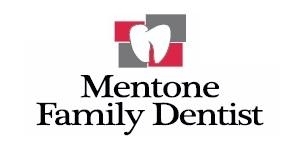
Bruxism, commonly known as teeth grinding or clenching, is a condition often unnoticed by those who suffer from it, especially when it occurs during sleep. It's more than just a habit; it can be a serious condition with far-reaching implications for dental and overall health. At Mentone Family Dentist, we believe in educating our patients about bruxism, its causes, effects, and management strategies, to ensure long-term oral health and comfort.
What is Bruxism?
Bruxism is the involuntary grinding or clenching of teeth, often occurring during sleep. This habitual behaviour can lead to a range of dental and health issues if not addressed. Understanding bruxism is the first step in preventing the potential damage it can cause to your teeth and jaw.
Possible Causes of Bruxism:
- Stress and Anxiety: Emotional stress is a common trigger for bruxism.
- Malocclusion (Teeth Misalignment): Improper alignment of teeth can contribute to grinding.
- Sleep Disorders: Conditions like sleep apnoea can be associated with bruxism.
- Lifestyle Factors: Excessive alcohol, caffeine, or tobacco use may contribute.
Exploring the Triggers
Identifying the underlying causes of bruxism or teeth grinding is crucial for effective management. Whether it's stress-related, a result of misaligned teeth, or linked to lifestyle choices, understanding these triggers helps us tailor a treatment plan that addresses the root of the problem, not just the symptoms.
Consequences of Bruxism:
- Dental Damage: Bruxism can lead to worn enamel, chipped teeth, and increased tooth sensitivity.
- TMJ Disorders: Chronic grinding can affect the temporomandibular joint, causing pain and dysfunction.
- Headaches and Facial Pain: Bruxism may result in headaches and discomfort in the jaw and face.
- Sleep Disturbances: Bruxism can disrupt sleep patterns, leading to fatigue.
The Impact on Your Health
The consequences of untreated bruxism extend beyond dental damage. It can lead to chronic pain, affect your quality of sleep, and even impact your overall well-being. Early detection and treatment are key to preventing these more serious complications.
Managing Bruxism at Mentone Family Dentist:
- Full Mouth Rehabilitation: This involves restoring and optimizing the entire dentition to improve function and prevent further damage caused by bruxism.
- Occlusion Splint (Night Guard): A custom-fitted mouthguard helps protect teeth from grinding during sleep.
- Botox Injections: Injecting Botox into the jaw muscles can reduce their activity, alleviating the intensity of grinding.
- Photobiomodulation (Low-Level Laser Therapy): This non-invasive therapy uses light to stimulate healing and reduce muscle tension associated with bruxism.
- Stress and Lifestyle Changes: Addressing underlying stressors and adopting relaxation techniques can contribute to managing bruxism.
- Orthodontic Treatment: Correcting misalignments can alleviate grinding caused by malocclusion.
Sleep Apnoea and Bruxism: Treating sleep apnoea may positively impact bruxism, as the interruption of breathing in sleep apnoea may trigger grinding as a physiological response.
A Tailored Approach to Treatment
At Mentone Family Dentist, we don't just treat bruxism; we look for the underlying causes and tailor our approach to each individual. From protective devices to lifestyle advice, we offer a range of solutions designed to alleviate symptoms and address the root causes of bruxism.
Understanding and managing bruxism is a journey that involves both patient and dentist. At Mentone Family Dentist, we are committed to providing comprehensive care that addresses all aspects of this condition. If you suspect bruxism, don't hesitate to discuss your concerns with us for personalised guidance and care. Together, we can work towards a healthier, more relaxed smile.
